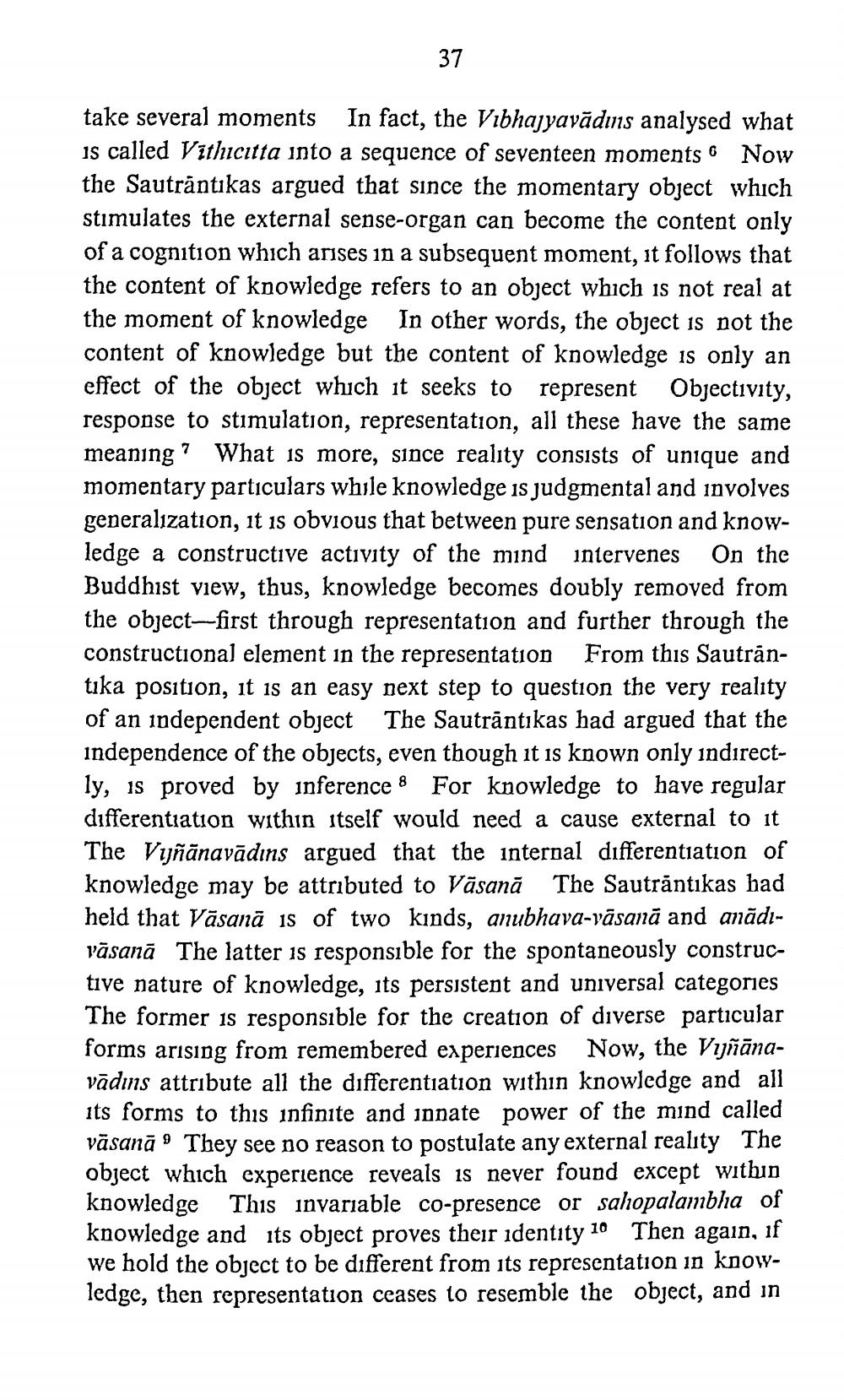________________
take several moments In fact, the Vibhajyavādıns analysed what is called Vithicitta into a sequence of seventeen moments 6 Now the Sautrāntikas argued that since the momentary object which stimulates the external sense-organ can become the content only of a cognition which arises in a subsequent moment, it follows that the content of knowledge refers to an object which is not real at the moment of knowledge In other words, the object is not the content of knowledge but the content of knowledge is only an effect of the object which it seeks to represent Objectivity, response to stimulation, representation, all these have the same meaning? What is more, since reality consists of unique and momentary particulars while knowledge is judgmental and involves generalization, it is obvious that between pure sensation and knowledge a constructive activity of the mind intervenes On the Buddhist view, thus, knowledge becomes doubly removed from the object--first through representation and further through the constructional element in the representation From this Sautrántika position, it is an easy next step to question the very reality of an independent object The Sautrāntikas had argued that the independence of the objects, even though it is known only indirectly, is proved by inference 8 For knowledge to have regular differentiation within itself would need a cause external to it The Vijñānavādıns argued that the internal differentiation of knowledge may be attributed to Vāsanā The Sautrāntikas had held that Vāsanā is of two kinds, anubhava-vāsanā and anādivāsanā The latter is responsible for the spontaneously constructive nature of knowledge, its persistent and universal categories The former is responsible for the creation of diverse particular forms arising from remembered experiences Now, the Vijñānavādıns attribute all the differentiation within knowledge and all its forms to this infinite and innate power of the mind called vāsanā. They see no reason to postulate any external reality The object which experience reveals is never found except within knowledge This invariable co-presence or salopalamblia of knowledge and its object proves their identity 10 Then again, if we hold the object to be different from its representation in knowledge, then representation ceases to resemble the object, and in




